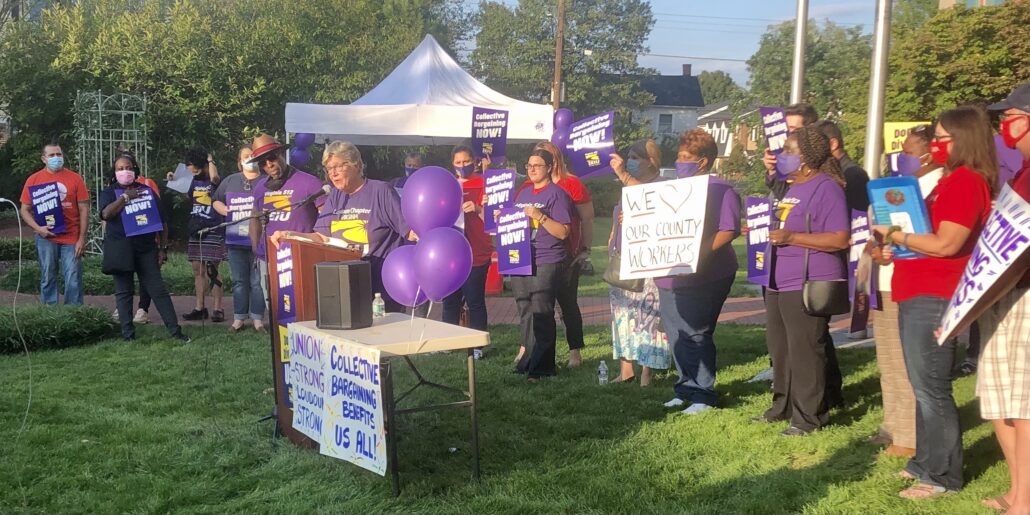Follows workshops at St. Benedict the African, St. Oscar Romero
In 2021, the Catholic Labor Network partnered with Coalition for Spiritual and Public Leadership (CSPL) to conduct a series of worker’s rights workshops rooted in Catholic doctrine – starting in Catholic parishes and culminating in a program for members of UNITE HERE Local 1 in Chicago.
That workshop, held at the Local union’s office headquarters, brought together 6 local union staff and members to learn about the history of Catholic Social Teaching and the role of Catholic Church in supporting the work of labor unions and the struggle for workers’ rights. The conversations at this workshop highlighted the deep connection between the workers’ faith and their efforts to organize for the respect of their dignity in the workplace. Cecilia Leiva – a Hyatt Regency Mini-bar attendant elected to the UNITEHERE Local 1 executive committee – observed:
This training was very effective in helping us better understand how to tap into our union members’ faith when we work to get workers engaged in the struggle for their rights. We need to invite a lot of people to stand up and to unite behind our faith and our desire for our rights and dignity to be respected as people of God and as workers. We have to tap into our spiritual lives to give us the love, passion and courage that we need to stand up for humanity. We need everyone to come together and this training helped us imagine ways that we can do that.
In an earlier iteration of the workshop, CLN Vice President Adrienne Alexander helped lead discussions at her parish, St. Benedict the African. In this largely Black Catholic parish on Chicago’s South Side, many parishioners were union members or retirees and enjoyed exploring the connection between their faith, the labor movement and the fight for justice today. During the workshops, participants explored the experience of Jesus from scripture, teaching an oppressed people in ancient Palestine about the Kingdom of God. Tiombe Eiland of St. Benedict the African reflected:
Are the inequalities that confront people today, the same as the ones that existed during the life of Jesus Christ? During this seminar, my team was quick to explain that class boundaries were very active over 2,000 years ago. People were limited by family and financial status, the region you lived in, the area in which you were born or came from.
Participant Simone Wright saw the workshop as a prompt to activism.
The workshops reaffirmed for me the breadth of Catholic theology on respect for life. I realized that I must move from the sidelines and figure out what contribution I could and wanted to make. The workshops guide one to action, not just discussion.
Additional workshops were held in the newly formed parish of St. Oscar Romero in the Back of the Yards neighborhood. At this workshop, 23 participants representing the four united parishes in Back of the Yards under the banner of St. Oscar Romero came together and heard from CSPL’s Director of Organizing Training and Economic Justice Organizer, Gabriel Lara, about how the teachings of the church on the rights of workers and the process of “See, Judge, Act” can provide a path for Catholics to put their faith into action when it comes to workers’ rights and economic justice.
CLN and CSPL aim to continue these training sessions and look forward to presenting workshops in both English and Spanish at the upcoming virtual Catholic Social Ministry Gathering in January 2022.


